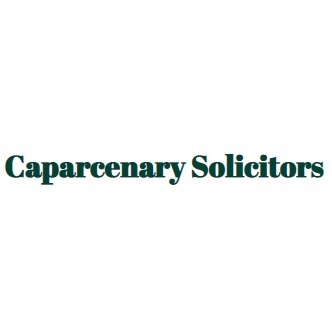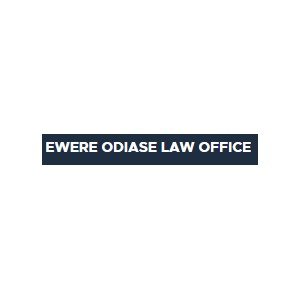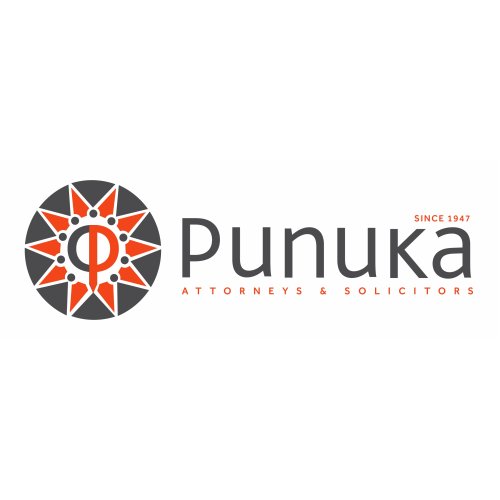Best Public-Private Partnerships (PPP) Lawyers in Asaba
Share your needs with us, get contacted by law firms.
Free. Takes 2 min.
List of the best lawyers in Asaba, Nigeria
About Public-Private Partnerships (PPP) Law in Asaba, Nigeria
Public-Private Partnerships (PPP) are structured arrangements where the government collaborates with private sector entities for the development, operation, or management of public infrastructure and services. In Asaba, the capital city of Delta State, PPPs have become an essential tool for delivering public projects such as roads, healthcare facilities, schools, and market complexes. Both the Delta State Government and relevant federal agencies adhere to established legal frameworks to ensure transparency, value for money, and shared risk in such projects. The main goal of PPPs in Asaba is to leverage private sector expertise and resources for improved public services.
Why You May Need a Lawyer
Engaging in a PPP project can be complex. You may need a lawyer if you are:
- A private investor or company interested in bidding for a government contract.
- A contractor or sub-contractor negotiating contract terms in a PPP arrangement.
- A civil servant or government official involved in designing or implementing PPP projects.
- A consultant advising either the public or private sector in PPP projects.
- An affected community member or stakeholder seeking to understand the implications of a PPP project in your area.
Legal professionals can help in reviewing contractual documents, ensuring regulatory compliance, negotiating scope and financial terms, managing risk allocation, protecting intellectual property, and resolving disputes that may arise from PPP activities.
Local Laws Overview
Several legal instruments govern PPPs in Asaba and Nigeria at large. At the federal level, the Infrastructure Concession Regulatory Commission (ICRC) Act provides a framework for PPPs. Delta State has its PPP policy and laws, which align with federal statutes and take into account the unique needs of the state. Key elements of local law include:
- Requirement for transparent and competitive bidding processes.
- Clear allocation of risks and rewards in project contracts.
- Regulations around financing arrangements and guarantees.
- Obligations for regular project monitoring and reporting.
- Environmental impact assessment and compliance with local planning laws.
- Provision for dispute resolution mechanisms, often through arbitration.
- Requirements for community engagement and social inclusion.
Each PPP project must adhere to both federal and state-level requirements, making it important to understand the legal landscape specific to Asaba and Delta State.
Frequently Asked Questions
What is a Public-Private Partnership (PPP)?
A PPP is a cooperative arrangement between the public sector and private companies to deliver infrastructure or services traditionally provided by the government.
Who oversees PPPs in Asaba, Nigeria?
PPPs in Asaba are regulated by both the Infrastructure Concession Regulatory Commission (at the federal level) and the Delta State PPP Office, ensuring compliance with laws and policies.
What types of projects are typically handled through PPPs in Asaba?
Common projects include roads, bridges, waste management, healthcare facilities, education centers, energy, and water supply projects.
How are PPP contracts awarded in Asaba?
PPP contracts are generally awarded through open, competitive bidding to ensure transparency and value for money.
Can any private company participate in a PPP project?
Most PPP projects are open to Nigerian and, in some cases, international firms that meet the eligibility requirements set out in the bid documents.
Are there specific laws that govern PPPs in Delta State?
Yes, Delta State has enacted its PPP policies and supporting laws in addition to abiding by the federal ICRC Act and related regulations.
How is risk shared in PPP arrangements?
Risks such as finance, construction, operation, and demand are typically allocated based on which party is best positioned to manage each risk effectively.
What happens if there is a dispute in a PPP contract?
Disputes are usually resolved using negotiation, mediation, or arbitration, with provisions detailed in the contract and as guided by applicable law.
Do PPP projects require environmental approvals?
Yes, all PPP projects must obtain the necessary environmental impact assessments and approval from the relevant local and federal agencies before commencement.
How do communities participate in PPP projects?
Communities are often engaged through public consultations, with mechanisms in place to receive input and safeguard local interests during project planning and implementation.
Additional Resources
For more information or assistance regarding PPPs in Asaba, the following resources can be valuable:
- Delta State PPP Office - Provides guidance and regulatory oversight for all state-level PPP projects.
- Infrastructure Concession Regulatory Commission (ICRC) - Federal agency responsible for monitoring PPP projects across Nigeria.
- Delta State Ministry of Justice - Offers legal advice and contract review services for public sector projects.
- Nigerian Bar Association (Delta State Branch) - Access to qualified legal practitioners experienced in PPP matters.
- Delta State Ministry of Works - Overseeing infrastructure-related PPPs and technical assessments.
Next Steps
If you need legal assistance with a PPP project in Asaba, start by gathering all relevant documents such as project proposals, tender documents, or communications with governmental bodies. Reach out to a lawyer who specializes in PPP law or consult with the Delta State PPP Office for guidance. Schedule a consultation to discuss your objectives, regulatory requirements, and any concerns you may have. A qualified legal professional can help you navigate compliance, risk management, contract negotiation, and, if necessary, dispute resolution to ensure your involvement in the PPP is both lawful and successful.
Lawzana helps you find the best lawyers and law firms in Asaba through a curated and pre-screened list of qualified legal professionals. Our platform offers rankings and detailed profiles of attorneys and law firms, allowing you to compare based on practice areas, including Public-Private Partnerships (PPP), experience, and client feedback.
Each profile includes a description of the firm's areas of practice, client reviews, team members and partners, year of establishment, spoken languages, office locations, contact information, social media presence, and any published articles or resources. Most firms on our platform speak English and are experienced in both local and international legal matters.
Get a quote from top-rated law firms in Asaba, Nigeria — quickly, securely, and without unnecessary hassle.
Disclaimer:
The information provided on this page is for general informational purposes only and does not constitute legal advice. While we strive to ensure the accuracy and relevance of the content, legal information may change over time, and interpretations of the law can vary. You should always consult with a qualified legal professional for advice specific to your situation.
We disclaim all liability for actions taken or not taken based on the content of this page. If you believe any information is incorrect or outdated, please contact us, and we will review and update it where appropriate.













